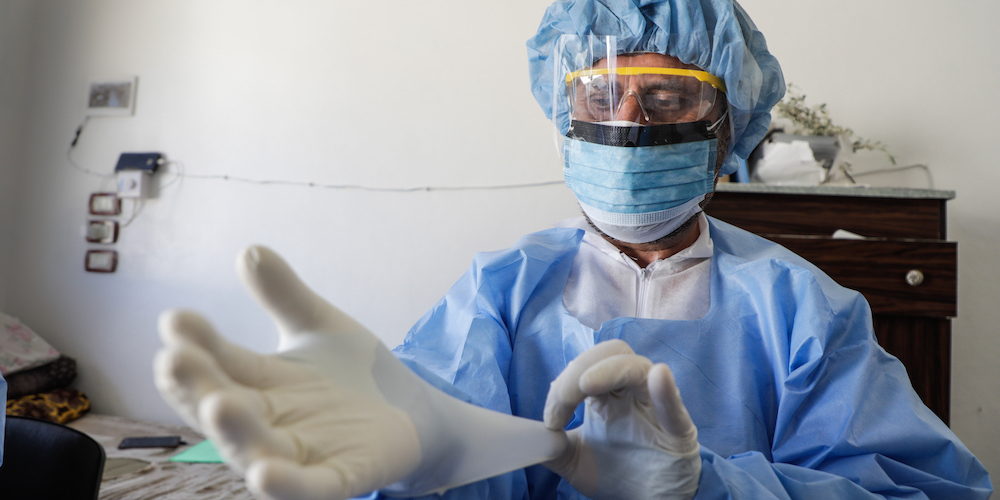
Local Manufacturing of Medical Supplies in Northwest Syria
Building up the needed supply chain of Personal Protective Equipment using open source designs and local manufacturing
In Syria, disrupted supply chains have made it difficult to procure health supplies. Across Northern Syria, there were 85 attacks on health facilities last year alone. It is anticipated that COVID-19 will have a devastating impact on already stretched health systems, where it was last reported that there were only 105 ICU beds and 30 adult ventilators available. The Northwest Syria health and supply chain teams have had difficulty procuring Personal Protective Equipment (PPE) at the start of the outbreak, as most supplies come across the border with Turkey and, like many countries, Turkey implemented export restrictions on PPE and other COVID-19 supplies. Procuring inside Syria, it has been difficult to find products of high quality or that exactly meet the needed specifications for safe protection.
The IRC is exploring local manufacturing of PPE and medical devices in northwest Syria, working with Open Source Medical Supplies. Innovations like open source communities of practice, local manufacturing, and technologies from 3D printing to sewing machines, combine to offer a new model of procurement for the humanitarian sector. In partnership with IRC’s economic recovery teams in the region, this program can build up the local supply chain of critical medical equipment needed by IRC health partners while also providing income to families in dire economic need due to the conflict and COVID-19.
In recent years, the local manufacturing and the “maker movement” has begun to cross over into humanitarian supply chains. Organizations like Field Ready have demonstrated the cost-effectiveness of local manufacturing, with savings of up to 90% in the Nepal earthquake response for basic medical supplies like fetascopes. They make the case that “local manufacturing of aid supplies – using both high-tech and low-tech methods – provides an opportunity to create business models that can realize substantial cost savings compared to conventional procurement of finished products via international supply chains.”
Currently, we are trying to fully define the problem, to diagnose the support that local manufacturers might need. This might include product support like templates, instructions and training materials; quality control and assurance support, to ensure the produced goods meet the standards needed by IRC; placing an order and guaranteeing purchase; or the financial support like business grants to finance the purchase of local materials, machine maintenance, soap and sanitation materials.
We anticipate that, initially, we will purchase PPEs at an agreed market price for use in local IRC programs. As production grows, we’ll test demand from other purchasers, including hospitals, and the local business community. The IRC will also link with other NGOs and community-based organizations that would be interested in procuring PPE from clients. If there is adequate demand, we’ll explore routes to help our enterprises scale to supply this larger market.
Project Timeline
Begin production of one PPE product
Dependent on funding, test production and our quality assurance system by beginning to produce one PPE item identified in Phase 1.
Phase One begins
Develop a paper prototype for this form of procurement and service delivery modality. Research health sector needs, available skills, equipment, and materials, to decide on an initial PPE item. Iterate on the open source product designs with IRC’s supply team to define quality standards and ensure we have a system in place to maintain quality control.